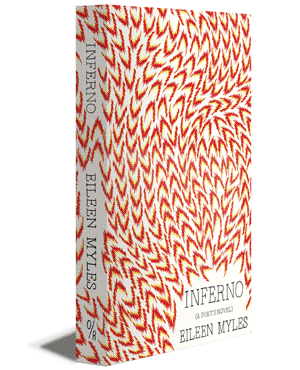
In the introduction to Sister Spit: Writing, Rants & Reminiscence from the Road, editor Michelle Tea proudly writes that Sister Spit is what she did instead of college. Reading this collection is like digging through a pile of her study group’s crumpled looseleaf notes at the end of the semester. It’s enough to get the gist of the lesbian-feminist-trans-vegan-poet-artist-addict-activist-adventurer curriculum, but by no means will you gain any mastery of it. You’ll just wish you’d enrolled in the classes, then lie awake at night questioning every major life decision you’ve ever made. In a good way. Really.
Sister Spit was formed in 1994, when Tea and Sini Anderson created a girls-only open mic night to get away from the Bukowski-worshipping bros dominating the San Francisco literary scene. Their show ran every Sunday for two straight years before they picked it up and hit the road. Together, Tea and Anderson led a roving band of queer poets and storytellers across the country in couple ramshackle rental vans, stopping in a new city every night to give live performances.
“Most Sister Spit shows are about class,” writes Tea. “About class and being female, or about class and not being female, about being trans, a faggot. There is feminism in everything, a punkness too.” The same gut feeling is also true for the works contained in Sister Spit (the book), and it is a pleasure to read.
Covering 15 years of Sister Spit’s best work, this anthology shows incredible range. The collection starts off strong from the very first piece: “Star,” a violent, bitchy, improper, fabulous poem by Samuel Topiary. A little further in, I loved “Training for Goddesses,” in which the hilarious Kat Marie Yoas describes her experiences at a dominatrix training camp. And “Real Paper Letter” by Tamara Llosa-Sandor was funny and wonderful in a gentler, contemplative sort of way.
My favorite piece of writing in Sister Spit is “High Five for Ram Dass” by Harry Dodge. Consider:
Chuck Mangione, Late Zeppelin and a Streisand are stuffed under the bleachers in a throbbing gyroscopic heap. Late Zeppelin’s head is banging into the aluminum bench at a pace that makes me feel like doing “The Bus Stop.” I watch them for a long minute and the crickets rev up their nighttime calypso. Buttes the color of ash and pumpkin ascend until mercifully, they eclipse the sun. A totally relaxing primal event. I feel looser. The air is soft, exactly the temperature of my skin and fragrant to boot. Orange blossoms. Tuna. Whimpers, screams, yells replace the metallic fuck-gonging and before long the trio emerges into the soft dark night smiling. Stumbling on loose hips.
Beautiful, isn’t it? It’s from a story about formerly feral children resynthesizing into contemporary culture.
Perhaps my least favorite segments in Sister Spit were the ones “from the road.” I found the constant name dropping to be distracting and annoying. Still, I loved reading the tales. I love knowing that these people — interesting, creative, inventive and resourceful as they are — existed and exist. I love that they’ve documented their stories and that I can access them whenever I want. And, okay, “Where Is My Soul?” with Cristy C. Road’s reflections from the road, equal parts inspirational and relatable, are pretty wonderful. “How do you do this?” she asks. “How do you grow so gracefully, achieving levels of confidence and success while maintaining your grit and spirit? Your anger and identity? How do I become Eileen Myles?” Oof. This. Or alternatively, how do I become Michelle Tea?
Sister Spit’s Spring 2013 literary tour begins in just a few short weeks! For a full list of tour stops, check out the City Lights website.


